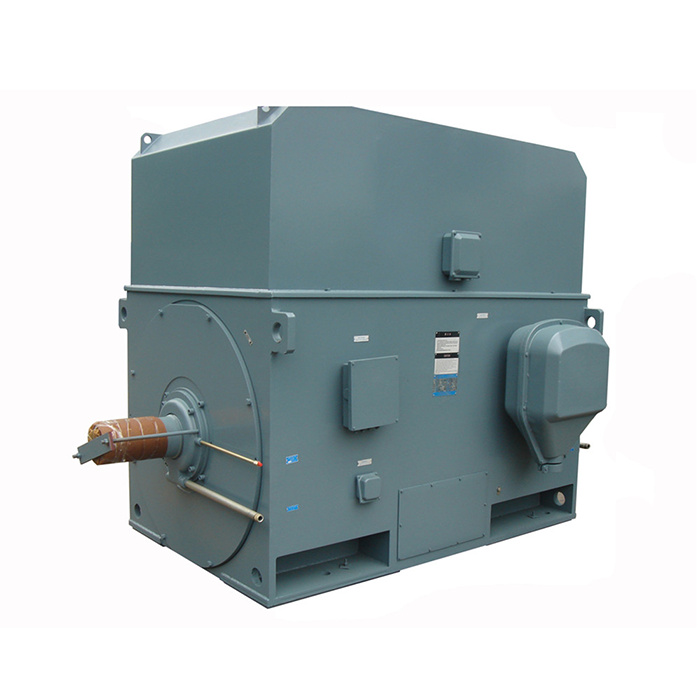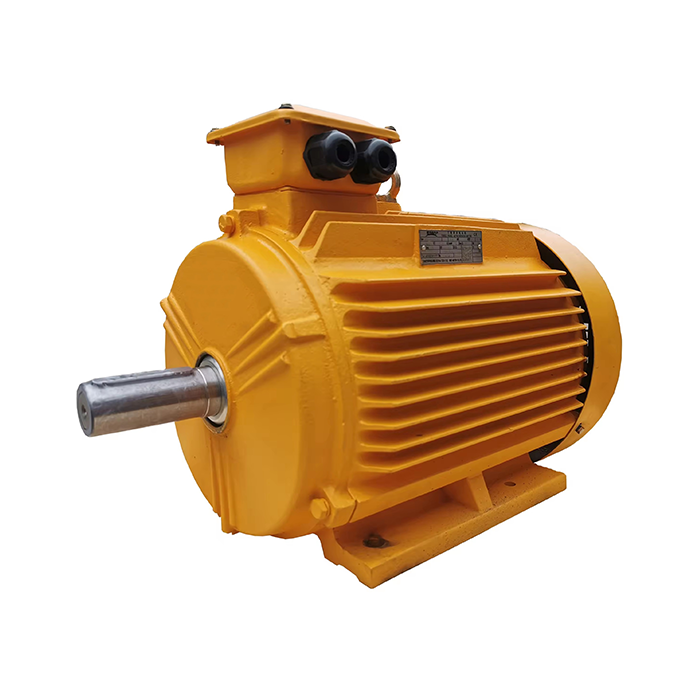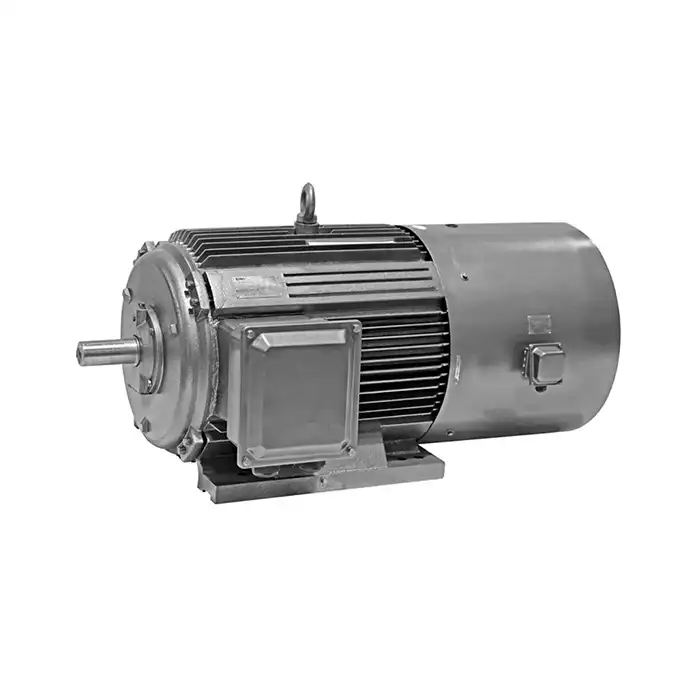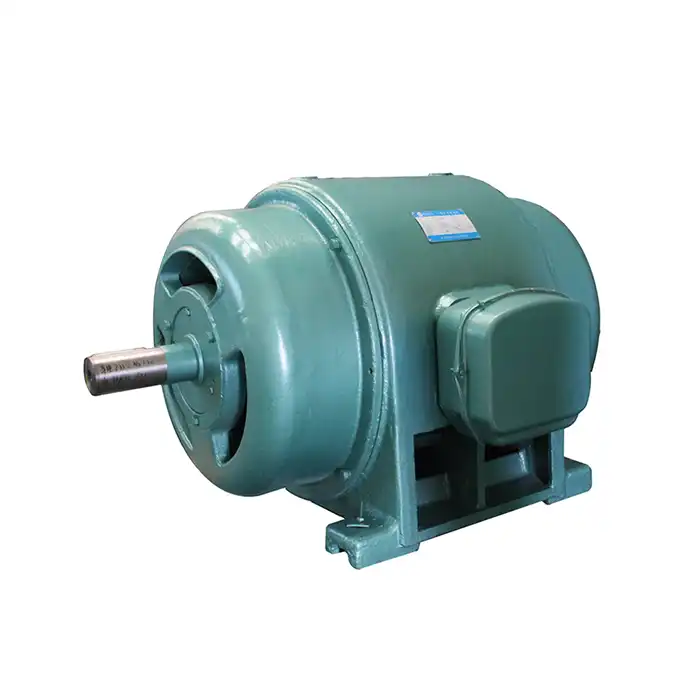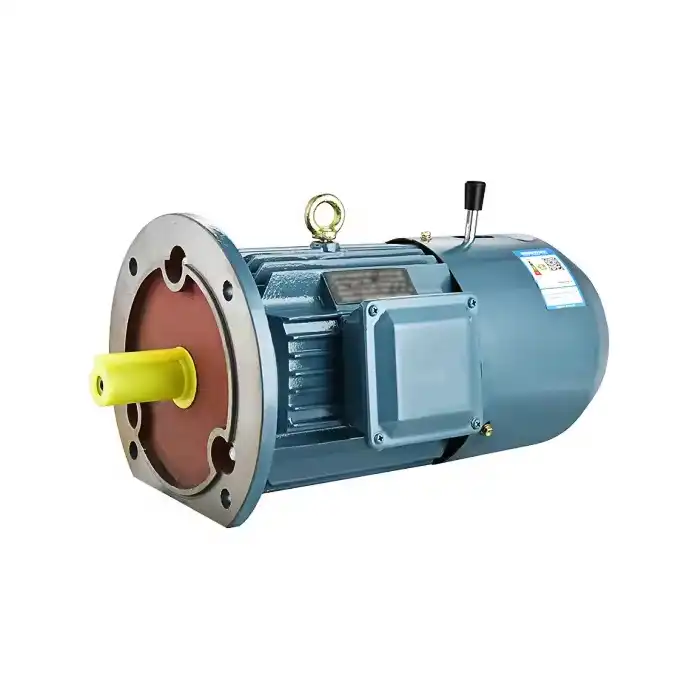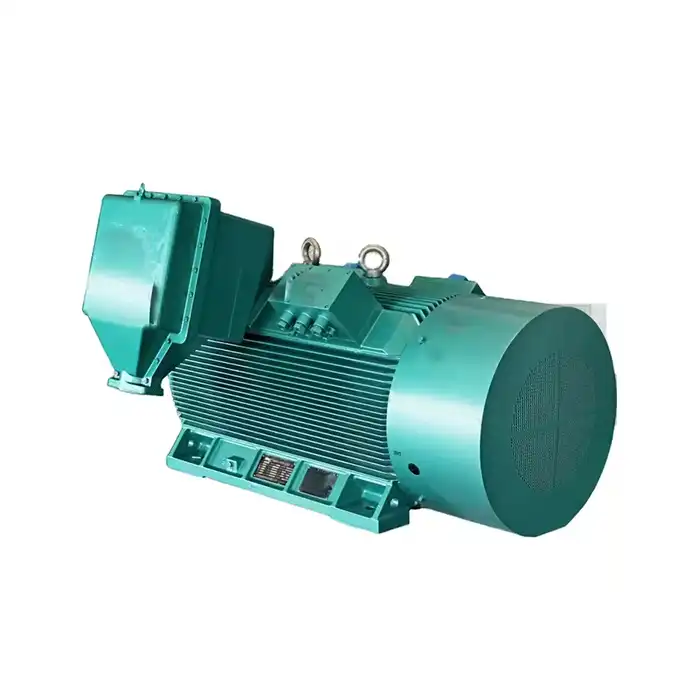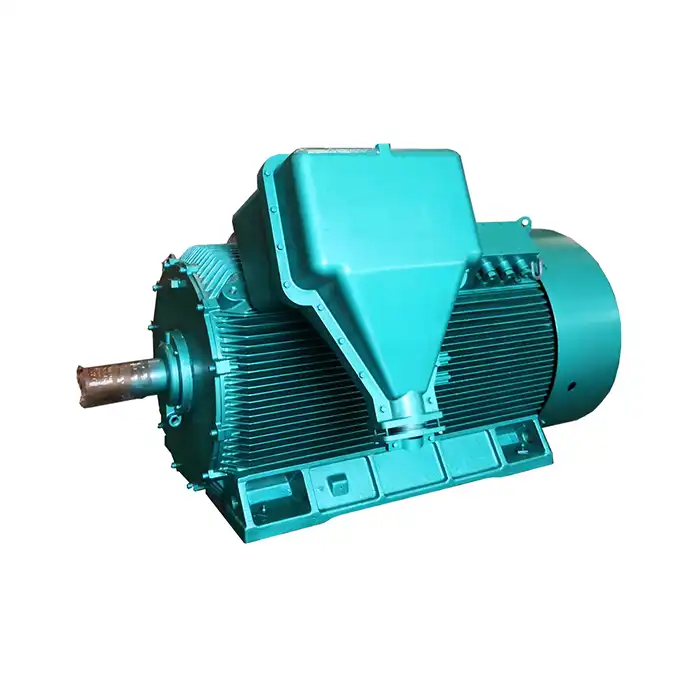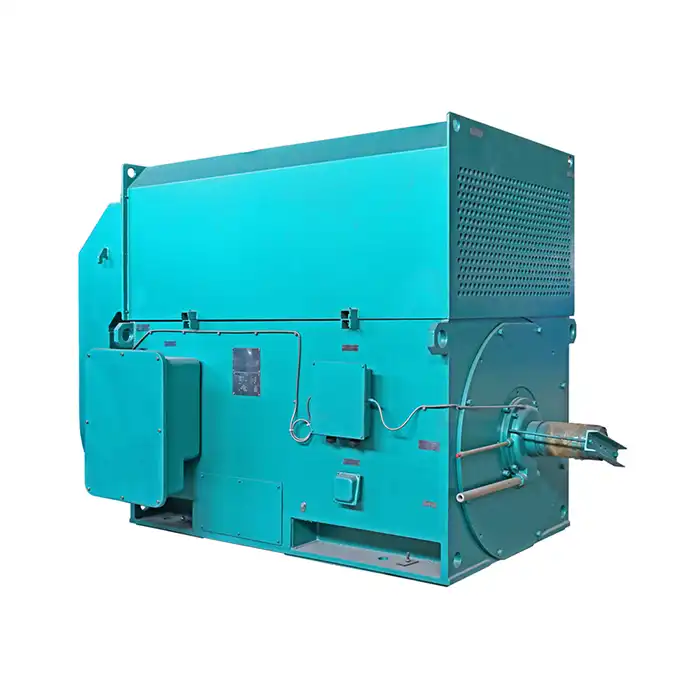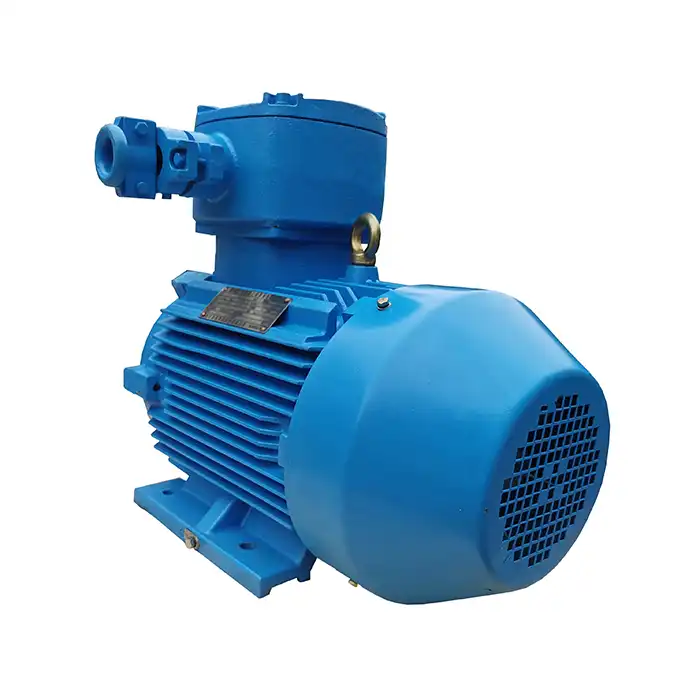Heat Management Challenges in High-Power Motors
High power electric motors generate substantial heat during operation, which can lead to numerous issues if not properly managed. Understanding these challenges is crucial for appreciating the role of water cooling systems.
Thermal Stress on Motor Components
The intense heat produced by high power motors can cause thermal stress on various components, including windings, bearings, and insulation materials. This stress can lead to premature wear and tear, reducing the motor's lifespan and reliability.
Efficiency Loss Due to Overheating
As motors heat up, their efficiency can decrease significantly. This loss in efficiency not only reduces performance but also increases energy consumption, leading to higher operational costs.
Risk of Electrical Failures
Excessive heat can compromise the integrity of electrical insulation, potentially leading to short circuits or other electrical failures. These issues can result in costly downtime and repairs.
Water Cooling: Extending Motor Lifespan
Water cooled electric motors offer several advantages over traditional air-cooled systems, particularly in high-power applications. Let's explore how water cooling contributes to extending the lifespan of these motors.
Superior Heat Dissipation
Water has a much higher thermal conductivity than air, allowing for more efficient heat transfer. This superior heat dissipation capability enables the product to maintain lower operating temperatures, even under heavy loads.
Uniform Cooling Distribution
Water cooling systems can be designed to provide uniform cooling across the entire motor, eliminating hot spots that can occur with air cooling. This even distribution of cooling helps prevent localized thermal stress and extends the life of motor components.
Reduced Thermal Cycling
Water cooling systems can maintain more consistent temperatures during operation and shutdown periods. This reduction in thermal cycling helps minimize stress on motor components, particularly in applications with frequent starts and stops.
Enhanced Overload Capacity
The improved cooling efficiency of water-cooled systems allows motors to handle higher overload capacities for short periods without risking damage. This flexibility can be particularly valuable in applications with variable load demands.
Cost-Benefit Analysis: Water vs. Air Cooling
While water cooling systems for electric motors offer numerous advantages, it's essential to consider both the benefits and potential drawbacks when comparing them to traditional air-cooled systems.
Initial Investment Considerations
Water cooling systems typically require a higher initial investment compared to air-cooled motors. This cost includes the motor itself, as well as the necessary plumbing, pumps, and heat exchangers for the cooling system.
Operational Cost Savings
Despite higher upfront costs, the product often lead to significant operational cost savings over time. These savings stem from:
- Improved energy efficiency due to better heat management
- Reduced maintenance requirements and longer intervals between servicing
- Extended motor lifespan, delaying the need for replacement
Space and Weight Considerations
Water cooling systems can allow for more compact motor designs, as they don't require large air passages for cooling. However, the additional components of the cooling system (pumps, radiators, etc.) may offset this advantage in some applications.
Environmental Factors
Water-cooled motors are less affected by ambient temperature and air quality, making them suitable for harsh or dusty environments. However, they require a reliable water supply and proper water treatment to prevent corrosion and scaling.
Applications Benefiting from Water-Cooled Motors
Several industries and applications particularly benefit from the use of water cooled electric motors. Understanding these applications can help in appreciating the value of water cooling technology.
Heavy Industry and Manufacturing
In steel mills, paper plants, and other heavy industrial settings, water-cooled motors provide the necessary power and reliability for continuous operation under demanding conditions.
Power Generation
Large generators and motors in power plants often utilize water cooling to maintain efficiency and reliability, crucial for consistent energy production.
Marine Applications
Ships and offshore platforms frequently use water-cooled motors due to their compact design and the readily available seawater for cooling.
Mining Operations
Underground mining equipment benefits from water-cooled motors' ability to operate in high-temperature environments with limited ventilation.
Maintenance Considerations for Water-Cooled Motors
While water-cooled motors offer many advantages, they require specific maintenance practices to ensure optimal performance and longevity.
Regular Water Quality Checks
Maintaining proper water quality is crucial to prevent corrosion, scaling, and biological growth within the cooling system. Regular testing and treatment of the cooling water are essential.
Inspection of Cooling Passages
Periodic inspection of water jackets and cooling passages helps identify any blockages or wear that could impair cooling efficiency.
Leak Detection and Prevention
Regular checks for leaks in the cooling system are important to prevent water ingress into the motor and ensure continuous cooling performance.
Monitoring of Cooling System Performance
Implementing a monitoring system to track coolant flow rates, temperatures, and pressure can help identify potential issues before they lead to motor failure.
Future Trends in Water-Cooled Motor Technology
The field of water cooled electric motors continues to evolve, with several promising trends on the horizon.
Advanced Materials for Enhanced Heat Transfer
Research into new materials with improved thermal conductivity could lead to even more efficient water cooling systems for electric motors.
Integration with Smart Systems
The integration of water-cooled motors with IoT and smart monitoring systems is likely to improve predictive maintenance capabilities and overall system efficiency.
Sustainable Cooling Solutions
There's growing interest in developing more sustainable cooling solutions, such as using recycled water or integrating with facility-wide heat recovery systems.
Conclusion
Water cooling is very important for high-power electric motors because it better manages heat, which leads to better performance, longer life, and more total efficiency. The cost may be higher at first compared to air-cooled systems, but the benefits over time often make up for it, especially in demanding industry settings.
As technology keeps getting better, water cooling systems for electric motors should get even better. This could make industry operations even more efficient and environmentally friendly. If your business uses a lot of high-power motors, looking into water-cooled options could be a smart move that pays off in the long run.
FAQ
Q1: What is the main advantage of water-cooled electric motors over air-cooled motors?
A: The best thing about water-cooled electric motors is that they can get rid of heat better than other types. Water is a better conductor of heat than air, which makes it better for cooling, especially in high-power situations.
Q2: Are water-cooled electric motors more expensive to maintain?
A: Water-cooled motors may need some extra maintenance on the cooling system, but because they are more reliable and last longer, they usually have lower total maintenance costs.
Q3: Can water-cooled electric motors be used in all environments?
A: Water-cooled motors are flexible and can be used in a lot of different places, even places that are rough and dirty. While they do need a steady flow of water, they might not be right for all situations, like when water is hard to come by.
Choose XCMOTOR for Your Water-Cooled Electric Motor Needs
At XCMOTOR, we only sell high-quality water cooled electric motors that are made to meet the specific needs of many businesses. We are dedicated to innovation and customer happiness, and our motors offer the best performance, dependability, and efficiency. We can give you answers that are tailored to your needs because we have years of experience and a team of expert engineers.
Don't let problems with managing heat stop your business work. If you choose XCMOTOR as your reliable water cooled electric motor manufacturer, you will notice a change in how well it works and how long it lasts. Contact us today at xcmotors@163.com to discuss how our water-cooled electric motors can benefit your application.
References
1. Johnson, M. (2022). "Thermal Management in High-Power Electric Motors: A Comprehensive Review". Journal of Electric Motor Engineering, 45(3), 112-128.
2. Smith, A. & Brown, T. (2021). "Comparative Analysis of Cooling Methods for Industrial Electric Motors". International Conference on Electric Machines and Drives, pp. 234-249.
3. Lee, K. et al. (2023). "Advancements in Water Cooling Technologies for Large Electric Motors". IEEE Transactions on Industry Applications, 59(2), 1875-1890.
4. Wilson, R. (2020). "Cost-Benefit Analysis of Water-Cooled vs. Air-Cooled Motors in Heavy Industry". Industrial Energy Efficiency Quarterly, 18(4), 67-82.
5. Garcia, P. & Martinez, L. (2022). "Maintenance Strategies for Water-Cooled Electric Motors in Continuous Process Industries". Reliability Engineering & System Safety, 217, 108090.
6. Thompson, E. (2023). "Future Trends in Electric Motor Cooling: Innovations and Challenges". Energy Conversion and Management, 277, 116514.



